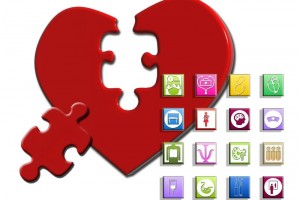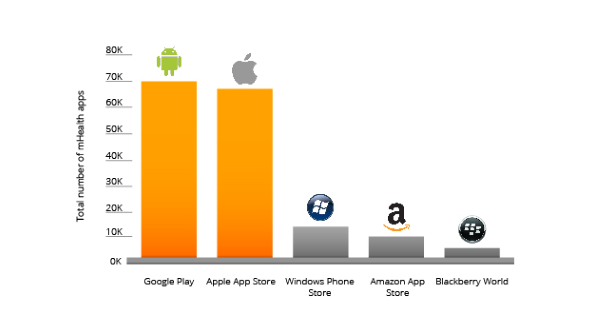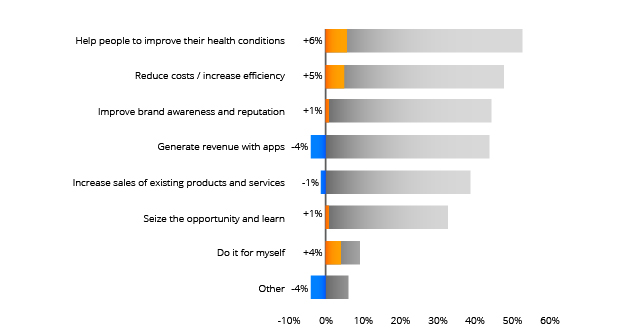 Research2guidance in collaboration with the mHealth Summit in Riga have conducted the largest mHealth research so far. More than 5,000 experts shared their views to determine the status of modern mHealth and make some predictions for the next years. Here are a few findings of this research study.
Research2guidance in collaboration with the mHealth Summit in Riga have conducted the largest mHealth research so far. More than 5,000 experts shared their views to determine the status of modern mHealth and make some predictions for the next years. Here are a few findings of this research study.
mHealth Apps in the App Market
The 2015 mHealth App Developer Economics Study shows the growth of investments into the market. “Today there are 45,000 mHealth app publishers that have published at least one mHealth app into one of the major app stores. mHealth now represents 5% of the total app market in terms of number of apps”. Below you can see the spread of mHealth apps among the main app stores.

Who Are the Publishers of mHealth Apps Nowadays?
According to the research, the majority of modern mHealth app publishers are not related to medical industry thanks to codeless online app development platforms like Snappii’s, which make app development possible for anyone with basic computer skills. Nevertheless, many publishers consult with medical professionals. This is a win-win situation, allowing building high quality mobile apps at a fraction of the cost and significantly improving the healthcare experience of patients and their families. “Today the main motivation for publishing mHelath apps is helping people with improving their health conditions (53%) and reducing costs or increasing efficiency of delivering health care (48%)”. The graph below shows what else motivates people to create mHealth apps.

What to Expect in the Future
The study shows that the primary target device for mHealth apps is a smartphone. This is expected to remain true over the next 5 years. Android and iOS are also projected to remain the dominant mHealth app development platforms.
Some researches on the business potential of modern mHealth apps have revealed that diagnostic apps have the highest potential in the next 5 years. Among other prosperous categories are medical condition management apps, electronic health records, and nutrition apps.
Despite these significant figures of mHealth market, it is just starting to change the way healthcare is delivered. Both patients and medical specialists have high expectations of mHealth solutions. It’s hard to foresee to what extent their expectations will be met, but close cooperation of medicine and technology is sure to bring more benefits in the future.

 Login
Login

